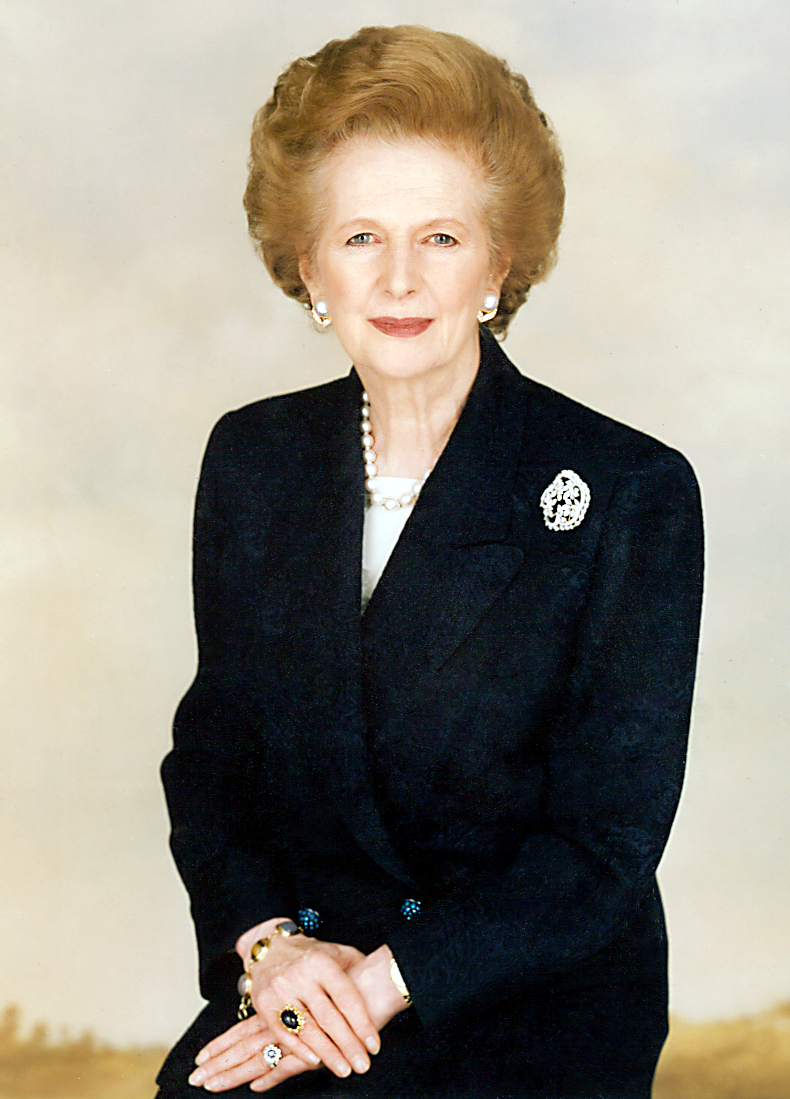If you’ve been keeping up with the new BILLY ELLIOT blog series thus far, you most likely have seen some neat stuff we’ve been sharing about the show. Our topics have ranged from the backstory behind why screenwriter Lee Hall wrote BILLY ELLIOT (it’s a loose autobiography!), the story of how Elton John coincidentally became apart of the creative team, and a bit of British history that you might not know unless you are a) British or b) a history nerd. Reading through, you might have also come to an understanding on what makes Billy’s community so strong. If you’re more of a visual learner, you can find videos on the blogs too! Still, there’s another big piece of the plot that hasn’t been mentioned yet.
Margaret Thatcher.

Photo by Chris Collins of the Margaret Thatcher Foundation.
Ever heard that name?
Well, you soon will become all too familiar. Margaret Thatcher was a name to be feared.
Margaret Thatcher was the name of the most powerful woman in the UK for 15 years.
Margaret, or “Maggie” Thatcher plays a prominent figure in BILLY ELLIOT as she was the Prime Minister of the United Kingdom during the time period. Elected in 1979, Margaret Thatcher was the first and only woman to ever hold the office of Prime Minister. From 1975-1990, she also was the Leader of the Conservative Party. Infamous for her unyielding ferocity in getting her way, the “Iron Lady” ran a tight ship. She realized that the failure of the Heath administration to the hands of Scargill and the NUM (National Union of Mineworkers) would only lead to false security in a job market that was not sustainable or economically viable.
Instead of crumpling like her predecessor Edward Heath, we see in BILLY ELLIOT that she prepared her police force to readily handle the chaos that a riot could cause, as well as nearly blacklist the miners on strike as a threat to “what it meant to be British.” Heath’s conservative government crumbled under the pressure of the NUM; she was determined not to let the same fate befall her. Despite her planning, a turn to brutality on the part of the police made the riots anything but peaceful.
In the end, she got her way by closing down the vast majority of the mines, even if it was only a handful at a time. Though highly unfavorable at the time, she did what arguably had to be done at some point. She simply decided it would be best to begin to shut it down then and there rather than draw out the process. It was the cruelty with which she treated the mineworkers on strike that has gained her a long-lasting and nefarious reputation.
“Merry Christmas Margaret Thatcher” is one of the most well-known songs from the show. The song is performed by miners at the top of the 2nd act in a taunting manner that reflects the feelings of the majority at that time. At one time, the song faced ejection as some critics didn’t take well to the dark humor. Either way, it’s hard to deny the song makes the story a little more “juicy”. You can listen below to make an opinion for yourself.
A portion of the chorus sings:
So merry Christmas Maggie Thatcher
May God’s love be with you
We all sing together in one breath
Merry Christmas Maggie Thatcher
We all celebrate today
‘Cause it’s one day closer to your death
Sources
Macintyre,Donald.How the Miners’ Strike of 1984-85 Changed Britain for Ever. New Statesman, 16J une 2014. Web. 17 July 2015.
Material in this blog gathered by BILLY ELLIOT Dramaturg Colby Frederick.
[/et_pb_text][/et_pb_column][et_pb_column type=”1_3″][et_pb_sidebar admin_label=”Sidebar” orientation=”right” area=”sidebar-1″ background_layout=”light” remove_border=”on” header_font_size=”18″ body_font_size=”14″ locked=”on”] [/et_pb_sidebar][/et_pb_column][/et_pb_row][/et_pb_section]












